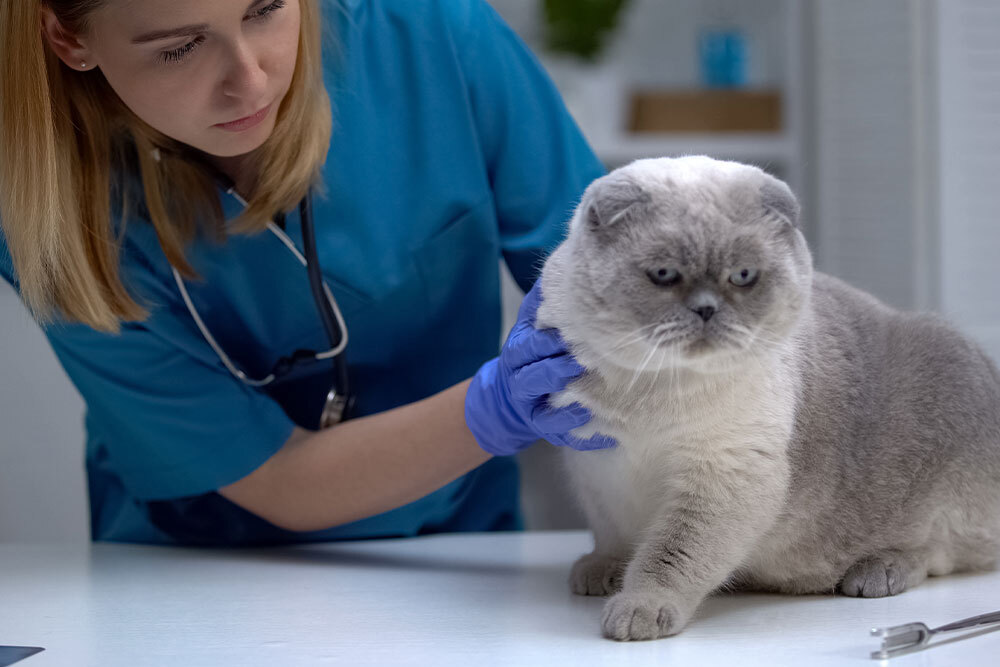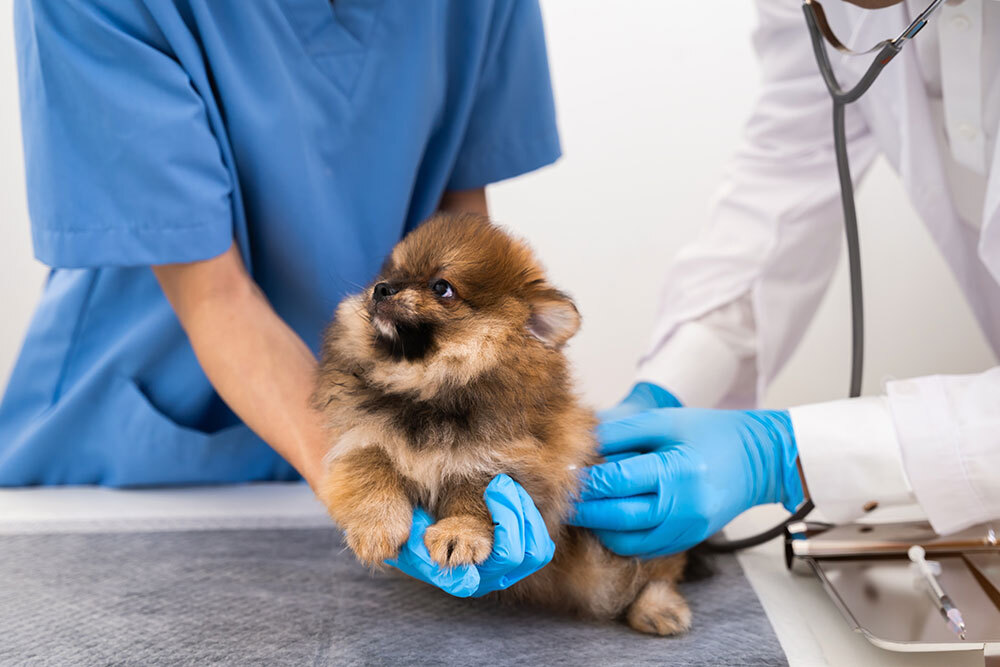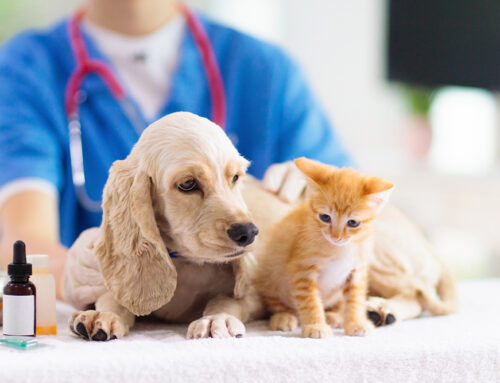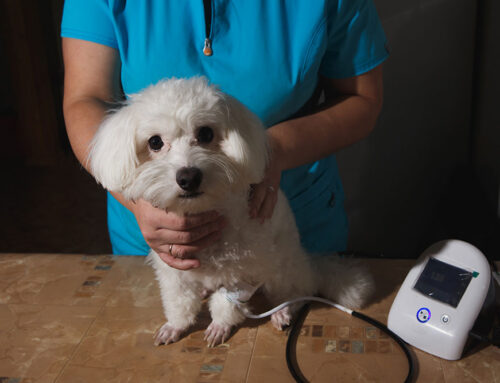At the Animal Hospital at Hillshore, we believe that every pet deserves a long, healthy, and happy life—and regular wellness exams are one of the most important ways to make that happen. Far more than a quick check-up, wellness exams are your pet’s first line of defense against disease, discomfort, and age-related decline.
In this guide, we break down what to expect during a wellness exam, how often your pet should be seen, and why consistent preventive care is one of the best decisions you can make as a pet parent.
What Is a Wellness Exam—And Why Does It Matter?
A wellness exam is a comprehensive health assessment designed to detect early signs of disease, provide preventive care, and offer you an opportunity to discuss your pet’s health and behavior with your veterinarian.
Even if your pet seems perfectly healthy, regular exams help catch subtle issues—like heart murmurs, dental disease, or metabolic disorders—before they progress into something more serious.
Learn more about the importance of wellness exams from the AVMA.
How Often Should My Pet Have a Wellness Exam?
General Guidelines
- Adult pets (1–7 years): Once per year
- Senior pets (7+ years): Every 6 months
As pets age, their health can change rapidly. For older dogs and cats, more frequent exams can make a significant difference in early detection and quality of life.
Recognize common senior pet health problems – AAHA
What’s Included in a Comprehensive Wellness Exam?
1. Physical Examination
Our veterinarians will evaluate your pet from nose to tail, looking for any visible or physical abnormalities:
- Eyes, ears, and teeth: Checking for discharge, inflammation, or signs of dental disease
- Heart and lungs: Listening for murmurs, arrhythmias, or labored breathing
- Joints and muscles: Palpating for pain, swelling, or signs of arthritis
- Skin and coat: Checking for allergies, parasites, or lumps
2. Diagnostic Testing
Not all health problems are visible on the surface. We often recommend baseline or age-specific tests to assess internal health:
- Bloodwork: Screens for infections, anemia, liver and kidney health, and more
- Urinalysis: Detects diabetes, kidney function, and urinary tract health
- Fecal exam: Identifies intestinal parasites, even in pets without symptoms
Why bloodwork matters – Pet Health Network
3. Vaccines & Preventive Care
Your pet’s vaccine needs are tailored to their age, lifestyle, travel habits, and exposure risks. We’ll review and update:
- Core and lifestyle-specific vaccines
- Flea, tick, and heartworm prevention
- Diet, dental care, and behavioral recommendations
Need help checking your pet at home? Try the DIY Dog Checkup from Kinship
Special Considerations for Senior Pets
As your pet ages, new health concerns can arise. Our team is trained to detect age-related conditions early and help you navigate long-term care with compassion and clarity.
Common Concerns in Older Pets:
- Arthritis and mobility issues
- Dental disease and tooth decay
- Chronic kidney, liver, or heart disease
- Weight changes or muscle loss
Senior exams may also include:
- Blood pressure monitoring
- Chest or abdominal radiographs
- Thyroid panels or ultrasounds
Learn more about senior pet health from AAHA
Why Regular Wellness Exams Are Worth It
1. Early Detection Means Better Outcomes
Catching a problem early—whether it’s cancer, diabetes, or dental decay—can lead to faster, less invasive, and more affordable treatment.
2. Better Chronic Disease Management
For pets with conditions like arthritis, allergies, thyroid imbalance, or heart disease, routine monitoring helps us fine-tune medications and support.
3. Stronger Pet–Owner–Vet Relationships
Wellness exams are a great time to ask questions, set long-term health goals, and ensure your pet’s care plan evolves with their needs.
How to Prepare for Your Pet’s Exam
Before Your Visit
- Bring a list of any symptoms, behavior changes, or new habits
- Bring a list or box of all supplements, medications, treats, etc
- Note any diet changes or recent travel/exposure
- Ask whether to fast your pet (important for bloodwork)
After the Exam
- Review any recommended follow-ups, medications, or lifestyle changes
- Set a reminder for next year’s appointment—or sooner for seniors
- Stay current on vaccines and parasite prevention
Wellness Exams Are Preventive Medicine at Its Best
Routine exams are one of the most powerful tools we have to keep your pet healthy—not just when they’re sick, but before problems start. Think of them as an annual reset: a chance to ensure your pet is thriving, not just surviving.
Is It Time to Book Your Pet’s Wellness Exam?
Whether it’s your pet’s first visit or their fifteenth, our team at the Animal Hospital at Hillshore is here to provide the attentive, expert care they deserve.
Request an appointment today and take the next step in giving your pet a healthier tomorrow.







Leave A Comment